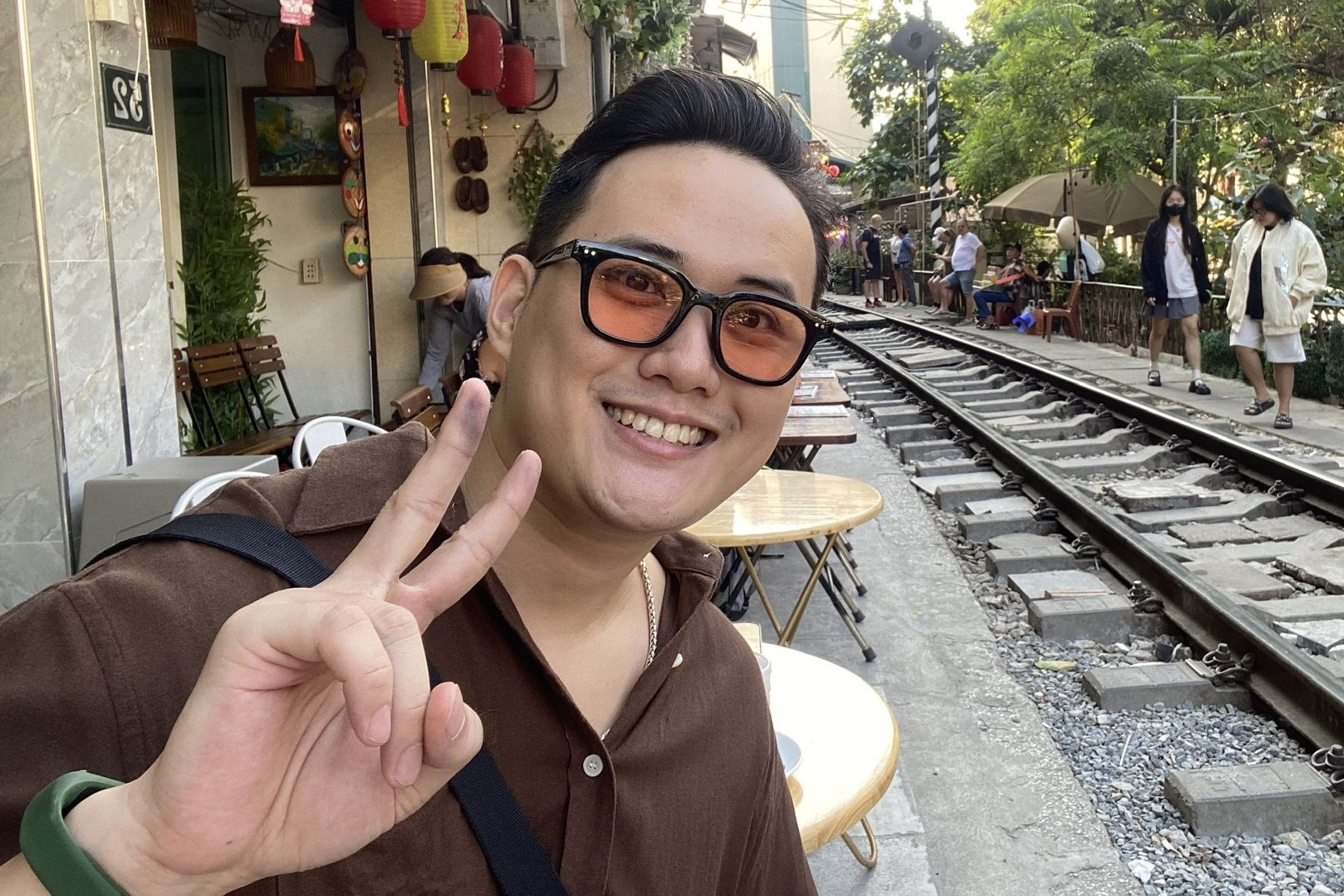
Pham Huy Hoang, 28, is a former Banking and Finance student at the Banking Academy. After graduating in 2019 and realizing that he wasn’t passionate about roles in his field, Hoang shifted to freelance IELTS teaching.
“My starting point was 7.5 IELTS, but I was very passionate about practicing pronunciation. I could spend hours self-studying pronunciation on YouTube and practicing with free online platforms,” Hoang recalled.
Through persistent effort, after 10 attempts, Hoang finally achieved a perfect 9.0.
Hoang’s first IELTS attempt was seven years ago, when he got 7.5. Determined to work as an IELTS coach, he devised a plan to “upgrade” himself.
“In recent years, the required standards for IELTS instructors have risen significantly compared to before. So, I worked on improving my scores, enhancing my communication skills, and finding effective teaching methods,” Hoang said.
To boost his scores, Hoang initially tried various English learning methods. He found watching favorite topics on YouTube and movies without subtitles highly effective. Hoang felt relaxed and entertained. The language learning process took place naturally. He also searched for IELTS documents to supplement his skills.
Despite multiple attempts, his scores initially fell short of expectations. After each test, Hoang requested a breakdown of his scores for each skill to identify strengths and weaknesses, enabling him to tailor his study strategy.
For Reading and Listening, Hoang focused on Cambridge books, practicing and analyzing answers thoroughly. He said a common mistake that many people make is practicing IELTS tests too early when skills are below 5.5.
Instead, he believes that learners should master specific questions before attempting full tests to avoid frustration.
For Speaking, Hoang used to study by carefully preparing the questions that might appear, trying to memorize and reproducing the answers during the exam. However, he soon realized that this made his speech unnatural and the examiner did not appreciate the candidate's memorization.
“Later, I practiced using vocabulary across different topics, moving away from templates and recording my speech to correct mistakes. Gradually, I developed natural fluency,” he said.
For Writing, Hoang initially tried to do as many sample tests as possible, but quickly found that it was ineffective. After some attempts, Hoang realized that “quality is better than quantity”. He focused on reviewing his writing after a while and finding points that could improve his score, instead of writing a lot but not reviewing.
In addition, he also paid attention to the length of sentences and the flexibility of the grammar structure, including simple sentences, compound sentences, passive sentences, relative clauses, and conditional sentences, among others.
Hoang cautioned against overusing complex vocabulary, which can trap learners at lower scores. “Overshadow” isn’t always a suitable replacement for “outweigh”, for example.
“Don’t overuse rare words unless you’re confident in their use. Simple, context-appropriate vocabulary can be the key to high scores,” he advised.
Learning from repeated failures
Through multiple retests, Hoang consistently learned to “improve each attempt.” For Writing Task 1, instead of just describing trends at the start and end, he focused on the overall picture and commented on the degree of change.
After many retakes, Hoang studied lessons to “improve his score next time”. For example, in the Writing section, when describing a graph in Task 1, instead of just talking about the increase and decrease process at the start and end points, Hoang focused on the overall picture, from which he commented on the level of change.
In addition, he also avoided getting bogged down in listing. For example, instead of saying, “The data increased to X in 2000, to Y in 2001, and to Z in 2002,” it is better to say, “The data increased steadily, each year by an amount of A, from X in 2000 to Z in 2002.”
Thanks to that, Hoang’s Writing section improved from 6.5 on his first attempt to a perfect 9.0.
According to Hoang, the mistake that most candidates make is to “rush” to register for IELTS courses with the expectation of increasing their scores within a short time. However, relying solely on 1-2 hours in class without homework or self-study makes it hard to achieve goals. “Everyone’s aptitude and learning pace differ, so avoid unrealistic crash courses,” he advised.
Thuy Nga